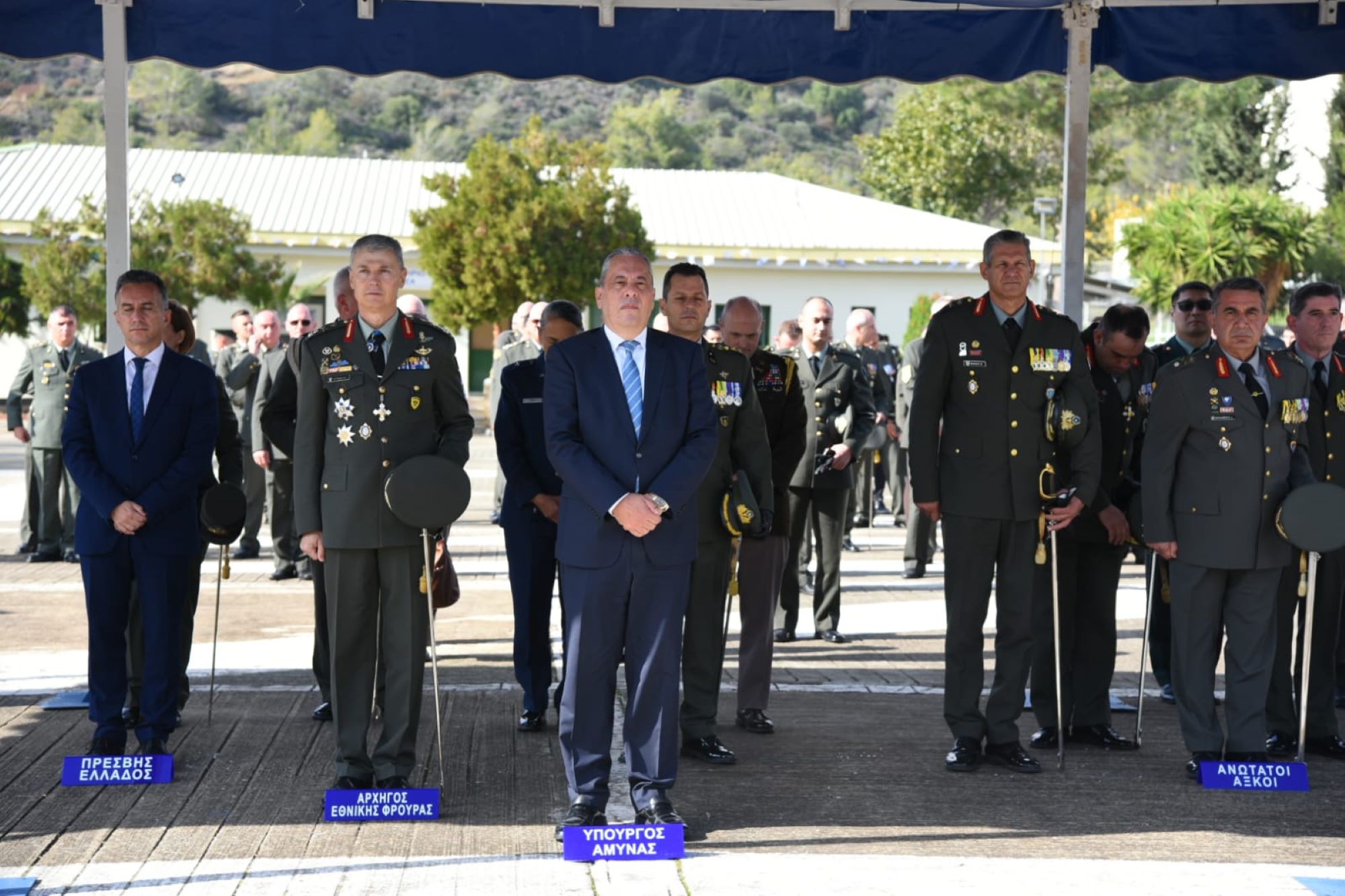Cyprus’ National Guard is “on alert because the region is in a state of constant, prolonged instability”, Defence Minister Vasilis Palmas said on Wednesday.
Speaking at an event to mark the feast of Saint Barbara, the patron saint of artillerymen, he said the Cyprus “is safe and has never been so strong militarily since the day the National Guard was established, or the day the Republic of Cyprus was established”.
He was loathe to go into details regarding the building up of the National Guard’s military might, especially with rumours abounding that Cyprus has bought “iron dome” hardware from Israel to protect itself from missiles.
“We always avoid commenting on many issues related to this. We work hard, we work tirelessly, and we say very little,” he said.
“The National Guard is always on alert, and the reason for that is that for 50 years, there have been 40,000 troops in Cyprus. At the same time, it is also on alert because the region is in a state of constant and prolonged instability and therefore, we have a duty and obligation to ensure the security of the Republic of Cyprus’ public.”
Earlier the same day, he had outlined the National Guard’s modern mission, saying it entails a “contribution to the preservation of peace [and] the territorial integrity and security as our homeland”.
Additionally, he said National Guard soldiers show a “dedication and faith to their mission and constitute the best proof that our martyrs’ sacrifice was not in vain, but continues to bear fruit, inspire us, and guide us in the fulfilment of that mission”.
“Six decades since its establishment, the National Guard continues to remain faithfully committed to its mission, as the main deterrent against any threat and as the main defender of the fundamental principles of freedom and democracy in Cyprus,” he said.
He added that his ministry has as such expressed its clear objectives regarding the strengthening of the armed forces’ combat capabilities and the upgrading of deterrent capabilities.
“We continue to move forward with steady steps in the implementation of our programme, aiming to modernise and strengthen the National Guard, so that moving towards the future, it can continue to successfully carry out the mission it was created to serve.
“By maintaining the National Guard’s defence capabilities at a high level, through the strengthening of its deterrent capacity, we aim to safeguard our national security and territorial integrity,” he said.
Rumours of Cyprus buying a variant of Israel’s “iron dome” first surfaced in 2021, with some news outlets now reporting that the process of the technology’s acquisition has now been completed.
The rumours of a Cypriot iron dome resurfaced after Greek Defence Minister Nikos Dendias told his country’s parliament last month that his ministry had created a “coherent and comprehensive air defence plan”.
This plan, he said, “provides for the protection of all the islands in the Aegean sea, but also of the mainland, by a series of systems which will create an umbrella against threats of all kinds”.
These systems include an anti-drone system as well as anti-aircraft weapons which will reportedly be able to deal with short, medium, and long-range threats.
In Greece, the creation of an “iron dome” has gone hand in hand with the establishment of the Hellenic Centre for Defence Innovation (HCDI), which, Dendias said, will “bring the needs of the armed forces into contact with the defence innovation environment which exists in Greece”.
“The small ecosystem of high-tech defence companies will cooperate with similar ecosystems in other countries,” he said.
He added that the development of the ‘Centaur’ anti-drone system was the HCDI’s “first great success”, after it was attached to a frigate which was deployed to the Red Sea as part of a Nato mission and shot down two drones fired by the Houthi movement from Yemen.
As such, he said, all Greek frigates will now be equipped with ‘Centaur’ technology.








Click here to change your cookie preferences